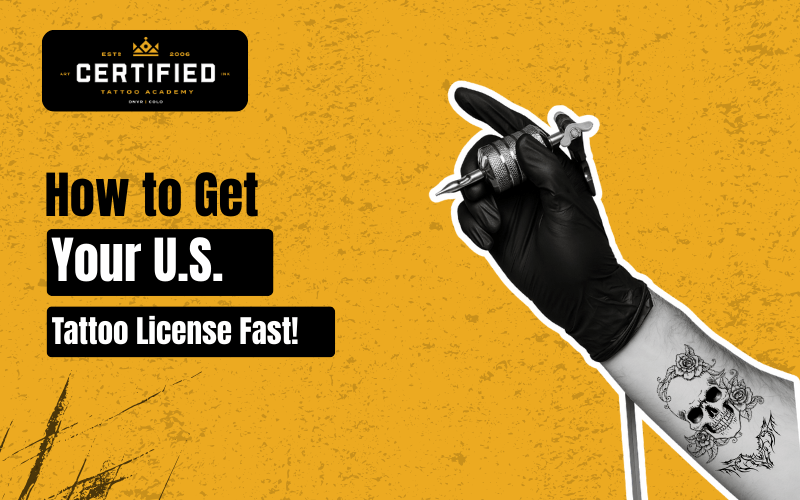How to Become a Licensed Tattoo Artist in the U.S.
Want to turn your passion for tattooing into a professional career? The first step is getting licensed. In the U.S., tattoo licensing laws vary by state, but the path usually includes training, certifications, and sometimes an exam.
Key Takeaways:
Not all tattoo inks are created equal. Here’s what professionals look for:
Most U.S. states require a tattoo license to operate legally.
Training, bloodborne pathogens certification, and age requirements are common.
Some states also require an exam or apprenticeship.
A professional tattoo course can speed up your journey.
Do You Need a License to Tattoo in the U.S.?
Yes, in most states. Whether you’re in California, Texas, or New York, a tattoo artist license ensures you meet local health and safety standards. Tattooing without a license can result in fines, legal issues, or business shutdowns.
Note: Always check your state health department's website for specific licensing rules.
General Requirements to Get a Tattoo License
While details vary by location, here are the common steps:
1. Be of Legal Age
Most states require you to be at least 18 years old to apply for a tattoo license.
2. Complete a Tattoo Training Program
Many states ask for proof of training or an apprenticeship under a licensed artist.
Online or structured tattoo courses can help you build skills and meet requirements.
3. Get Certified in Bloodborne Pathogens
This ensures you understand disease prevention and sanitation.
Usually available through OSHA-compliant courses.
4. Pass an Exam (in Some States)
States like Oregon or Florida may require you to pass a written or practical exam.
5. Submit an Application
Includes a fee, documentation of training, and sometimes a background check.
State-Specific Tattoo Licensing
Texas Tattoo License requirements
Requires registration with the Department of State Health Services
Bloodborne pathogens course is mandatory
Facility must also be licensed
New York Tattoo License requirements
NYC requires an Infection Control Course
Must renew every 2–4 years
California Tattoo License requirements
Each county regulates licensing
Hepatitis B vaccination and a Bloodborne Pathogens certificate are required.
Tip: Search "[Your State] tattoo license requirements" for accurate info.
Can You Tattoo Without a License?
No, not legally. Even if you're tattooing from home, operating without a license puts you and your clients at risk. Health inspections, fines, and client lawsuits can all follow.
How Long Does It Take to Get Licensed?
Your current condition and training path will determine the timeline:
Online or in-person courses: 3–12 months
Apprenticeships: 1–3 years
Application approval: 2–8 weeks after submission
What If My State Has No Licensing Requirements?
Some areas may not have strict laws, but that doesn't mean you should skip training. Taking a tattoo course and getting certified in sanitation still makes you a safer, more credible artist.
Pro Tip: A professional-looking artist attracts more clients and better reviews.
Final Thoughts
Getting licensed isn’t just about following the law. it’s about doing the job right. Whether you're just starting or upgrading your skills, training and certification make a huge difference.
Desire to work as a professional tattoo artist with complete license assistance? Join our tattoo courses today and take the first step toward your dream career.

Frequently ASKED questions
-
Yes. Most U.S. states require a license to legally perform tattooing services.
-
Register with the state, complete a bloodborne pathogens course, and ensure your workspace is licensed.
-
Only if your state allows it and your home studio is inspected and approved.
-
It can take anywhere from a few months to several years, depending on your training and state laws.
-
You’ll need sanitation training, tattoo practice (via course or apprenticeship), and possibly exam prep.

